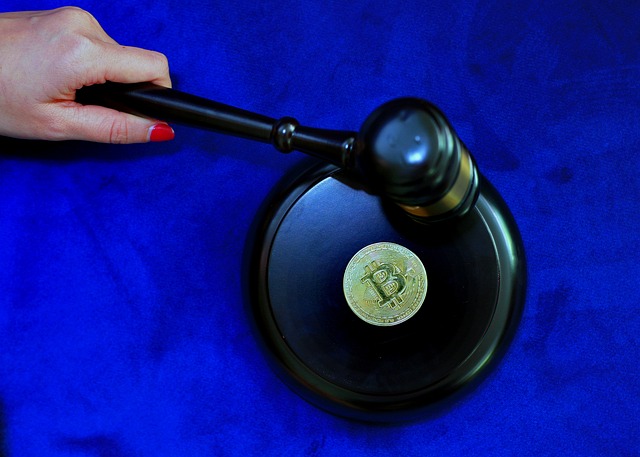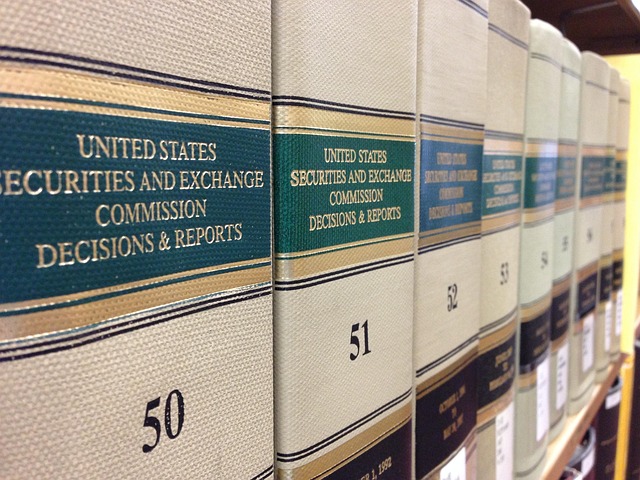Securities class actions provide investors a powerful tool for redress against corporate misconduct or fraud, leveraging collective power and legal expertise. Inspired by criminal law's Search and Seizure Rights, these actions balance public safety and privacy, ensuring fairness in evidence gathering and litigation. Understanding these rights is crucial for defensive strategies, protecting accused parties while maintaining legal integrity. Evolving from rare occurrences to prominent in the 20th century, class actions now serve as a robust mechanism for monetary compensation, transparency, and justice within financial markets.
Securities class actions play a pivotal role in financial markets, empowering investors to hold wrongdoers accountable. This article offers a comprehensive look at these legal battles, exploring key components like understanding securities class actions, the intersection with search and seizure rights in criminal law, strategic considerations for investors, and historical impacts. By delving into these aspects, we aim to provide insights into the intricate world of securities litigation, highlighting its significance in maintaining market integrity.
- Understanding Securities Class Actions: An Overview
- The Role of Search and Seizure Rights in Criminal Law
- Key Considerations for Investors in Class Action Suits
- Historical Perspective and Impact of Securities Class Actions
Understanding Securities Class Actions: An Overview

Securities Class Actions offer a powerful mechanism for investors to seek justice and compensation for financial losses incurred due to corporate misconduct or securities fraud. This legal process allows individuals who have suffered similar harm to join forces, forming a class, and taking collective action against the responsible parties. By pooling resources and sharing legal expenses, class members enhance their negotiating power and access to expert legal counsel.
This type of litigation involves complex issues and demanding standards, including demonstrating a violation of federal or state securities laws and establishing causation between the defendant’s actions and the plaintiffs’ losses. However, when navigated successfully, securities class actions can lead to significant settlements or winning challenging defense verdicts. Across the country, these cases have achieved extraordinary results, providing restitution for wronged investors and setting precedents for corporate accountability in the financial markets, much like Search and Seizure Rights in Criminal Law ensure fairness and justice in criminal proceedings.
The Role of Search and Seizure Rights in Criminal Law

In the realm of criminal law, Search and Seizure Rights play a pivotal role in balancing the need for law enforcement to gather evidence with the protection of individual privacy rights. These rights are a cornerstone of fair and just proceedings, ensuring that investigators adhere to strict protocols during every step of an investigation. When properly executed, it enables authorities to access and secure relevant evidence, which can lead to a complete dismissal of all charges in cases where the evidence is insufficient or obtained illegally.
An unprecedented track record of successful defensive strategies in securities class actions often hinges on understanding and leveraging these rights. Legal teams must navigate all stages of the investigative and enforcement process, ensuring that any search and seizure activities are conducted in accordance with established legal frameworks. This meticulous approach not only safeguards the rights of the accused but also strengthens the overall integrity of the legal system.
Key Considerations for Investors in Class Action Suits

When involved in securities class actions, investors must be aware of several key considerations that can significantly impact their outcomes. One crucial aspect is understanding search and seizure rights in criminal law, as these principles often intersect with civil litigation. Investors should be mindful that, unlike in traditional lawsuits, class action suits against corporations may involve extensive document production and potential site visits by legal teams. This means personal records and digital assets could be subject to scrutiny, similar to search and seizure procedures in criminal cases.
Additionally, investors should consider the potential for jury trials and the complexities of white-collar defense strategies. Given that these cases often revolve around intricate financial matters and nuanced interpretations of law, a successful outcome may hinge on avoiding indictment or, at least, presenting a compelling case that distinguishes it from scenarios that could lead to criminal charges. Effective legal representation in class actions should take these factors into account to safeguard the rights and interests of investors involved.
Historical Perspective and Impact of Securities Class Actions

The concept of securities class actions has evolved significantly over time, mirroring societal shifts in financial markets and investor awareness. Historically, these actions were relatively rare, often overshadowed by individual lawsuits. However, the 20th century witnessed a dramatic change as investors became more vocal about protecting their rights. This shift can be attributed to increased market complexity and the growing importance of investor protection, both in terms of financial stability and democratic values. The movement gained traction with landmark cases that established important precedents, ensuring that companies and individuals could be held accountable for securities fraud and other misconduct.
Securities class actions have since become a powerful tool for achieving extraordinary results, not only in terms of monetary compensation but also in sending strong signals to corporations and their leaders. By banding together, investors can challenge unfair practices and seek justice, thereby fostering transparency and accountability within the financial sector. This collective action is particularly crucial in ensuring that philanthropic and political communities remain untouched by corrupt or fraudulent activities. Moreover, jury trials in these cases have played a pivotal role in upholding the rule of law, as they provide a platform for affected investors to present their case directly to a group of citizens, who can then render a verdict based on the evidence presented, reflecting the public interest.
Securities class actions play a significant role in holding companies accountable, protecting investors, and fostering fair market practices. By understanding the historical perspective and key considerations involved, investors can navigate these complex legal landscapes effectively. The intersection of criminal law’s search and seizure rights further highlights the importance of such actions in ensuring transparency and justice. In summary, while class action suits present challenges, they remain a powerful tool for holding corporations and individuals accountable for securities fraud and misconduct.






